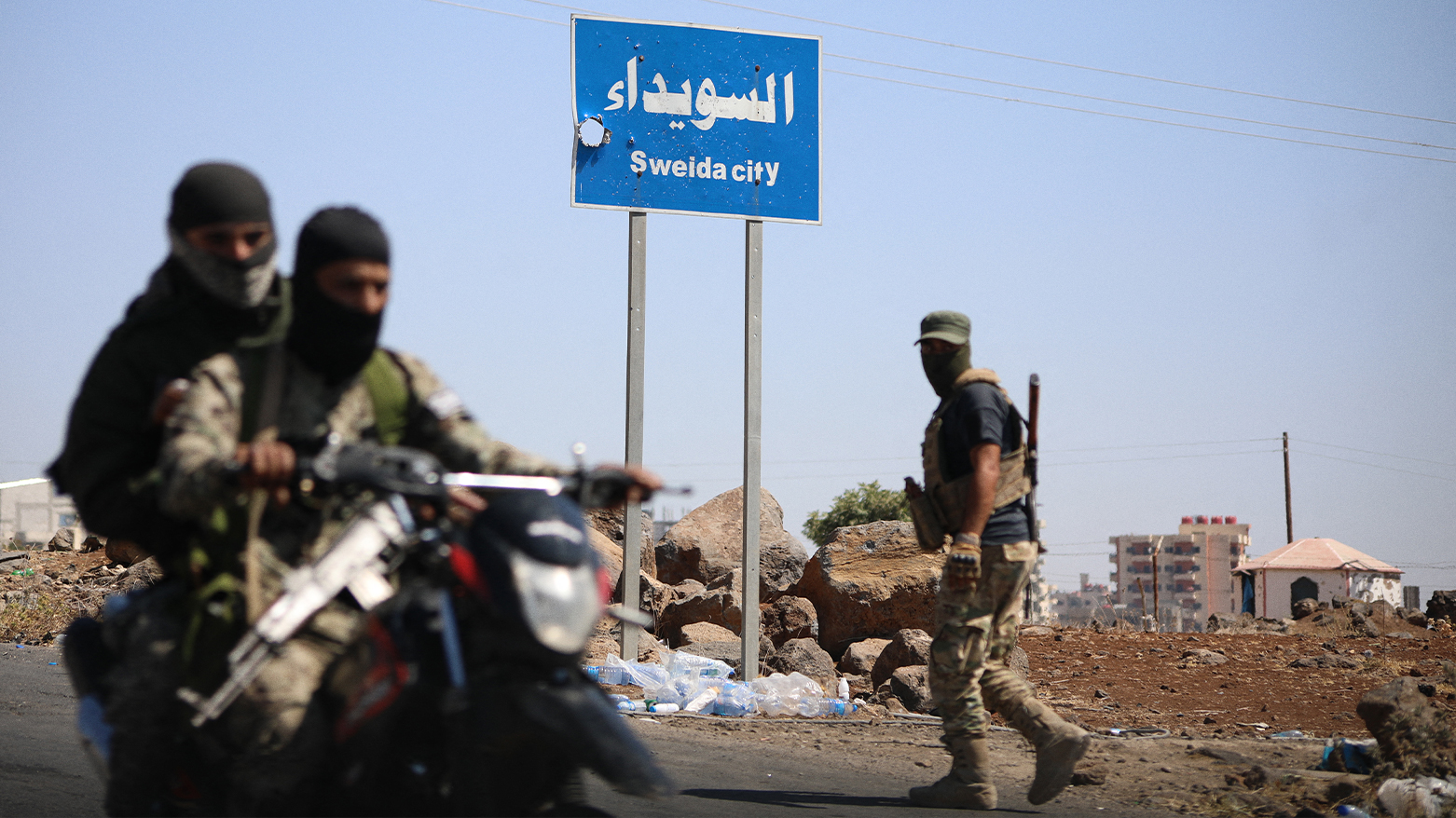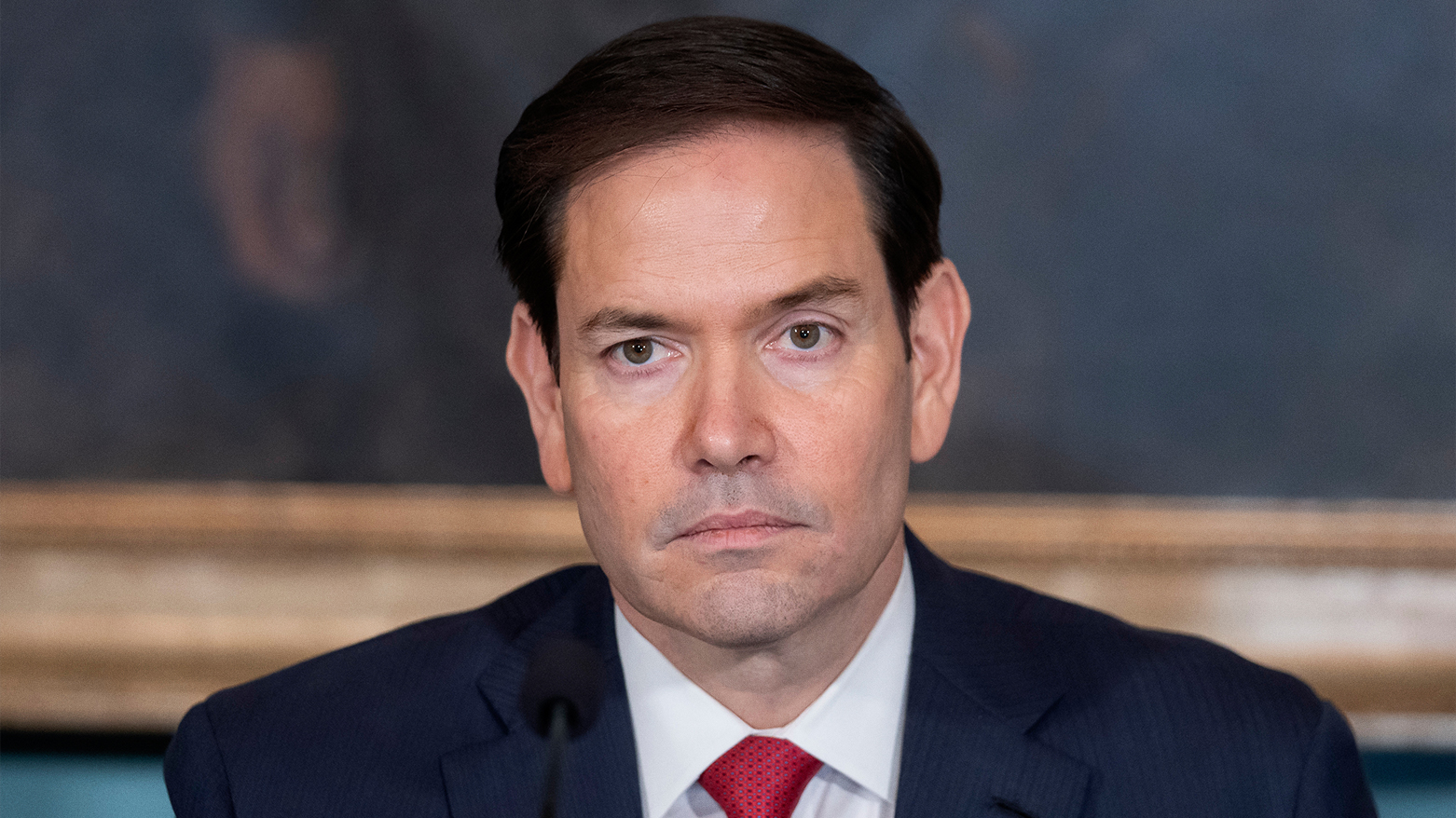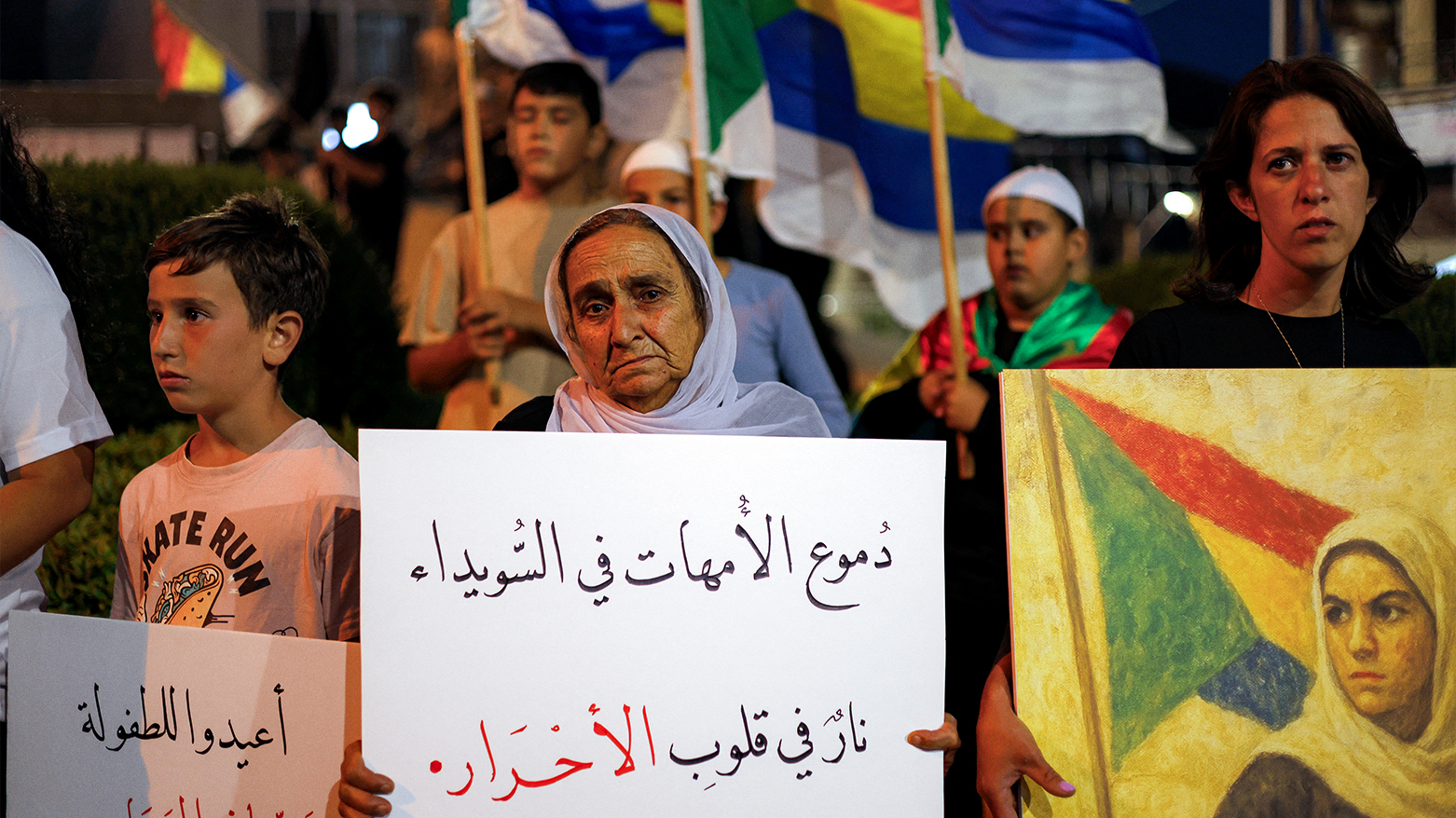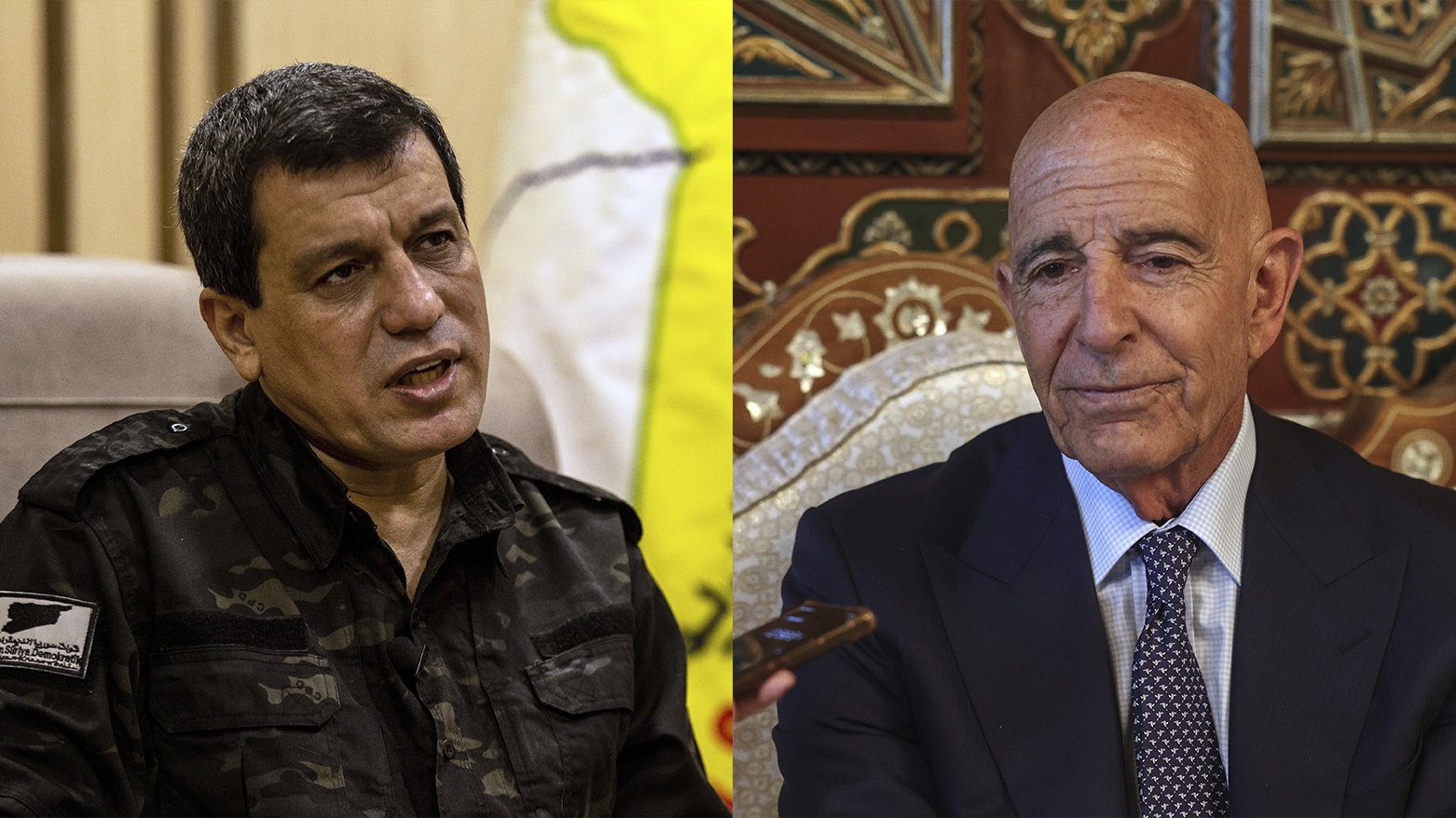US Demands End to Sweida 'Calamity' as Fragile Ceasefire Holds
Following a U.S.-brokered ceasefire in Suwayda after 940+ deaths, Secretary Rubio demands an end to the "calamity." Druze leaders appeal for international protection, while a U.S. envoy meets with SDF Commander Abdi to discuss a unified Syria and restore stability.

By Kamaran Aziz
ERBIL (Kurdistan 24) – U.S. Secretary of State Marco Rubio issued a stark warning on Sunday regarding the "horrifying & dangerous developments" in southern Syria, demanding an immediate end to the "rape and slaughter of innocent people" as a fragile, U.S.-brokered ceasefire takes hold in the Druze-majority province of Sweida after a week of sectarian violence that has claimed over 940 lives.
In a statement posted on the social media platform X, Secretary Rubio outlined a series of demands for the authorities in Damascus, linking their actions to any future prospects for a stable and unified Syria.
“The U.S. has remained heavily involved over the last three days with Israel, Jordan and authorities in Damascus on the horrifying & dangerous developments in southern Syria,” Rubio stated. “The rape and slaughter of innocent people which has and is still occuring must end. If authorities in Damascus want to preserve any chance of achieving a unified, inclusive and peaceful Syria free of ISIS and of Iranian control they must help end this calamity by using their security forces to prevent ISIS and any other violent jihadists from entering the area and carrying out massacres.”
The Secretary of State's demands did not stop at external threats, insisting on internal accountability as well. “And they must hold accountable and bring to justice anyone guilty of atrocities including those in their own ranks,” his statement continued. “Furthermore the fighting between Druze and Bedouin groups inside the perimeter must also stop immediately.”
The U.S. has remained heavily involved over the last three days with Israel, Jordan and authorities in Damascus on the horrifying & dangerous developments in southern Syria.
— Marco Rubio (@marcorubio) July 20, 2025
The rape and slaughter of innocent people which has and is still occuring must end.
If authorities in…
The high-level U.S. intervention follows a week of brutal clashes that erupted on Sunday, July 13, between Druze and Bedouin communities, which quickly spiraled, drawing in Syrian government forces, regional tribes, and even the Israeli military. The Syrian Observatory for Human Rights, a Britain-based war monitor, has reported a staggering death toll of at least 940 people in the violence.
On Saturday, July 19, the Syrian government, led by interim President Ahmed al-Sharaa, announced an "immediate and comprehensive" ceasefire in the province. The announcement came after Druze fighters successfully pushed rival armed factions out of the city of Sweida and state security forces began to redeploy to the region.

Syria's interior ministry spokesman, Noureddine al-Baba, confirmed in a Telegram post on Sunday that the city was "evacuated of all tribal fighters, and clashes within the city's neighbourhoods were halted."
Druze Leadership Appeals for International Protection
Amid the diplomatic maneuvering and the precarious calm, the spiritual leadership of the Druze community has issued a desperate plea for international protection, asserting that their community has acted solely in self-defense.
In a statement on Saturday, the Spiritual Leadership of the Monotheistic Druze announced its commitment to the ceasefire but underscored that their own reconciliation efforts at the outset of the turmoil were met with continued aggression.
“The Spiritual Leadership of the Monotheistic Druze declares that they are true to their word and not promise-breakers, and that for several days they have only been defending themselves and were not the aggressors,” the statement affirmed.
The leadership explicitly called upon the international guarantors of the ceasefire to take concrete action. The statement urged “the countries that guaranteed the ceasefire to shoulder their responsibilities, fulfill their duties, and honor their commitments to stop the attacks on the Druze.” In a direct appeal, it also called for “direct international protection for the Druze.”
The call for protection is set against a backdrop of immense loss and devastation. An AFP correspondent in Sweida on Saturday witnessed dozens of torched homes and vehicles, and armed men setting fire to shops after looting them.
Bassem Fakhr, a spokesman for the Men of Dignity, one of the largest Druze armed groups, confirmed to AFP later that evening that there was "no Bedouin presence in the city" after Druze fighters launched a large-scale counter-attack.

The Syrian Observatory for Human Rights has provided a grim breakdown of the casualties, which illustrates the scale of the suffering. The dead reportedly include 326 Druze fighters and 262 Druze civilians, with a shocking 165 of them said to have been summarily executed.
The violence also claimed the lives of 312 government security personnel and 21 Sunni Bedouin, including three civilians who were allegedly summarily executed by Druze fighters.
U.S. Engages SDF on a Unified Syria
As efforts focused on de-escalating the crisis in the south, U.S. diplomatic activity extended to its key partners in the country's northeast. The U.S. Embassy in Syria confirmed that U.S. Special Envoy to Syria, Ambassador Thomas J. Barrack, met with Syrian Democratic Forces (SDF) General Commander Mazloum Abdi on Saturday to discuss the wider situation in the country.
In a post on X, the embassy detailed the scope of the high-level meeting. “U.S. Special Envoy to Syria Ambassador Thomas J. Barrack met with SDF General Commander Mazloum Abdi today to discuss the current situation in Syria and the need for urgent steps to restore calm and stability,” the announcement read.
The discussion moved beyond immediate crisis management to the long-term future of Syria, a topic of critical importance to the autonomous administration in the northeast.

“They also discussed practical steps towards integration into a unified Syria for a peaceful, prosperous, inclusive and stable future for all Syrians. They agreed the time for unity is now,” the embassy stated. The post concluded by noting that, “The Ambassador also thanked General Mazloum for his leadership and the SDF’s continued partnership in combatting ISIS in Syria.”
U.S. Special Envoy to Syria Ambassador Thomas J. Barrack met with SDF General Commander Mazloum Abdi today to discuss the current situation in Syria and the need for urgent steps to restore calm and stability. They also discussed practical steps towards integration into a unified…
— U.S. Embassy Syria (@USEmbassySyria) July 19, 2025
This meeting highlights the multifaceted American diplomatic approach, engaging with various actors across Syria in an effort to forge a path toward a unified state, even as acute regional conflicts like the one in Sweida threaten to tear it further apart.
The ceasefire deal itself was a product of intense U.S. diplomacy. Ambassador Barrack, who also serves as the U.S. ambassador to Ankara, had announced earlier on Saturday that interim President Sharaa and Israeli Prime Minister Benjamin Netanyahu "have agreed to a ceasefire" negotiated by the United States, with the backing of Turkey and Jordan.
BREAKTHROUGH —— Israeli Prime Minister @Netanyahu and Syrian President Ahmed al-Sharaa @SyPresidency supported by the U.S.A. @SecRubio have agreed to a ceasefire embraced by Türkiye, Jordan and its neighbors. We call upon Druze, Bedouins, and Sunnis to put down their weapons and…
— Ambassador Tom Barrack (@USAMBTurkiye) July 18, 2025
Following the agreement, President Sharaa delivered a televised speech renewing his pledge to protect Syria’s ethnic and religious minorities. "The Syrian state is committed to protecting all minorities and communities in the country... We condemn all crimes committed" in Sweida, he said, paying tribute to the U.S. role.
However, this pledge was met with immediate and public skepticism from Israel, which had earlier in the week bombed Syrian government forces in Sweida and Damascus, accusing them of summary executions and other abuses against Druze civilians. Israeli Foreign Minister Gideon Saar posted on X that in Sharaa’s Syria, “it is very dangerous to be a member of a minority -- Kurd, Druze, Alawite or Christian.”
As the fighting halts, the humanitarian crisis remains severe. The United Nations reports that the violence has displaced at least 87,000 people. Syria's Information Minister Hamza al-Mustafa stated Saturday that a second phase of the ceasefire plan would involve the opening of humanitarian corridors to assist the beleaguered population. The international community now watches to see if this fragile calm can translate into lasting stability or if it is merely a pause in a deeply fractured nation.
